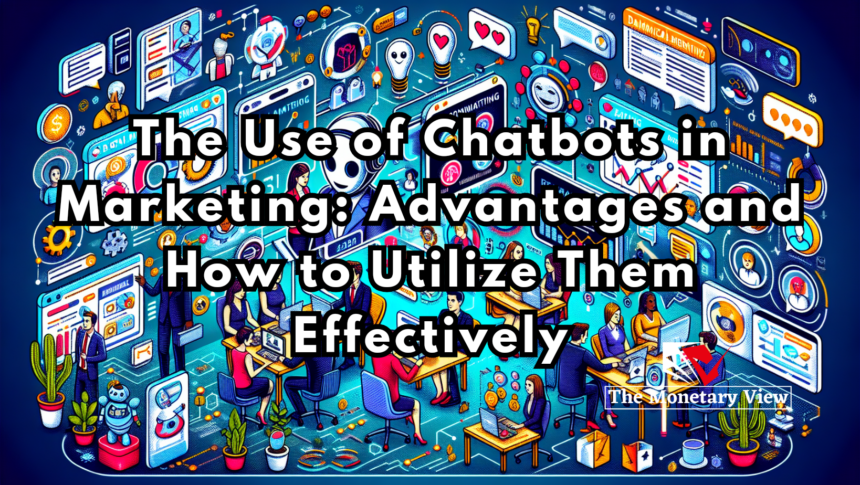In today’s fast-paced digital world, businesses constantly seek innovative tools to streamline customer interactions and enhance user experiences. Chatbots have emerged as a game-changer in the marketing domain, offering businesses a scalable way to engage with customers, provide instant support, and drive sales. This article explores the benefits of chatbots in marketing and effective strategies for leveraging them.
What is a Chatbot?
A chatbot is an AI-powered software application designed to simulate human-like conversations with users through text or voice. These bots can be integrated into websites, messaging apps, or customer service platforms to automate interactions.
There are two main types of chatbots:
- Rule-Based Chatbots: Operate based on pre-defined scripts and decision trees. They are ideal for answering straightforward, repetitive questions.
- AI-Powered Chatbots: Use machine learning and natural language processing (NLP) to understand and respond to complex queries dynamically.
Advantages of Using Chatbots in Marketing
- 24/7 Availability
- Chatbots can operate round the clock, ensuring customer queries are addressed anytime, even outside regular business hours.
- Instant Responses
- They provide instant replies to user inquiries, improving customer satisfaction and reducing wait times.
- Cost-Effectiveness
- By automating repetitive tasks, chatbots reduce the need for extensive customer support teams, lowering operational costs.
- Personalized Customer Experience
- AI-powered chatbots can analyze user data to deliver tailored recommendations and messages, enhancing the customer journey.
- Increased Engagement
- By initiating proactive conversations, chatbots can engage users, keeping them longer on your platform and increasing conversion rates.
- Lead Generation
- Chatbots can qualify leads by asking relevant questions and collecting user information for follow-up marketing efforts.
- Scalability
- Unlike human agents, chatbots can handle multiple conversations simultaneously, making them scalable for businesses of all sizes.
- Data Collection and Analysis
- Chatbots gather valuable customer insights, helping businesses refine their marketing strategies.
Techniques for Using Chatbots in Marketing
- Enhancing Customer Support
- Deploy chatbots to handle FAQs, resolve common issues, and redirect complex queries to human agents when necessary.
- Automating Lead Qualification
- Use chatbots to ask qualifying questions, segment customers based on their needs, and pass high-quality leads to the sales team.
- Personalized Product Recommendations
- Integrate chatbots with your e-commerce platform to suggest products based on users’ browsing history or preferences.
- Running Marketing Campaigns
- Chatbots can be used to deliver personalized promotional messages, discounts, or event reminders directly to customers.
- Content Delivery
- Use chatbots to share relevant blog posts, videos, or guides based on user queries and interests.
- Conducting Surveys
- Gather customer feedback or conduct market research through interactive chatbot-driven surveys.
- Boosting Social Media Engagement
- Integrate chatbots with platforms like Facebook Messenger or WhatsApp to answer inquiries and drive engagement.
- Cart Abandonment Recovery
- Send automated messages to users who leave items in their cart, reminding them to complete their purchase.
- Event Registrations
- Simplify event sign-ups by using chatbots to collect registration details and send confirmations.
- Gamification and Quizzes
- Engage users with interactive quizzes or games facilitated by chatbots to keep them entertained while collecting valuable data.
Best Practices for Effective Chatbot Implementation
- Set Clear Goals
- Define the specific purpose of your chatbot, whether it’s for customer support, lead generation, or increasing sales.
- Keep Conversations Natural
- Design chatbots to mimic natural human conversations for a more engaging and seamless experience.
- Provide Clear Navigation
- Ensure users can easily navigate through options and know how to escalate issues to human agents if needed.
- Test and Optimize
- Continuously monitor chatbot performance and make adjustments based on customer feedback and analytics.
- Ensure Data Security
- Protect customer data by implementing robust security measures and complying with privacy regulations.
- Integrate with Other Systems
- Link your chatbot with CRM, analytics tools, and other platforms to enhance functionality and data sharing.
Challenges and Limitations
While chatbots offer numerous benefits, they have limitations:
- Complex Queries: AI chatbots may struggle to resolve highly intricate issues.
- Customer Frustration: Poorly designed chatbots can lead to dissatisfaction if they fail to meet user expectations.
- Initial Investment: Developing and implementing a sophisticated chatbot requires upfront costs.
Conclusion
Chatbots have revolutionized the marketing landscape by offering businesses a cost-effective and efficient way to connect with customers. From automating repetitive tasks to delivering personalized experiences, chatbots are indispensable tools for modern marketing strategies. By leveraging their capabilities and adhering to best practices, businesses can enhance customer satisfaction, drive sales, and stay ahead in an increasingly competitive market.






